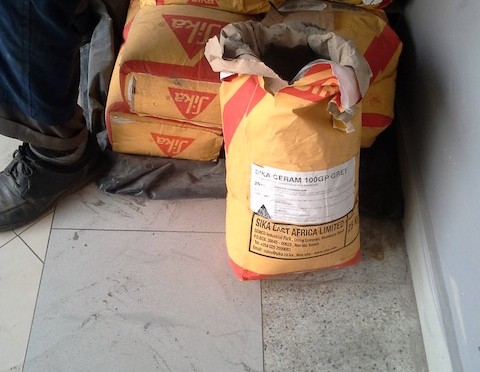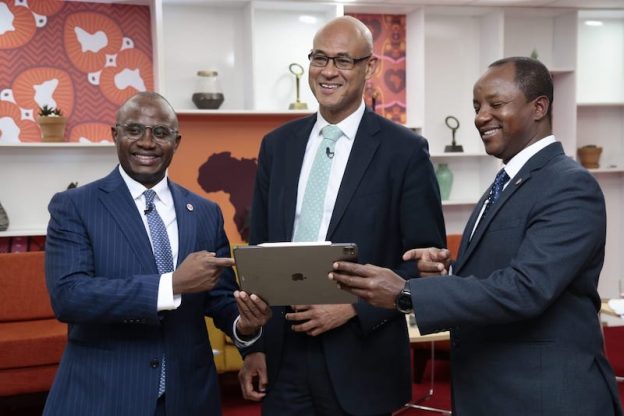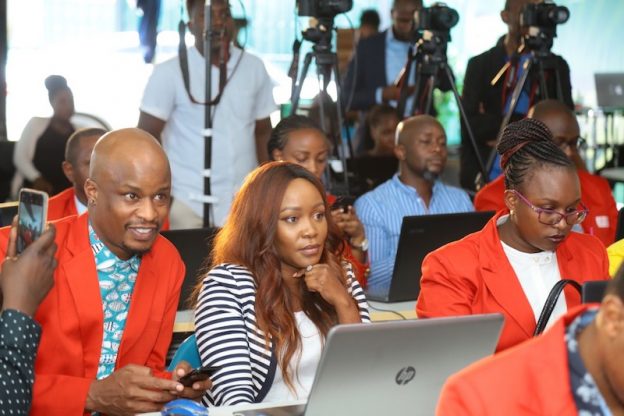President William Ruto visited the Nairobi Securities Exchange (NSE) and rang the opening bell, then listened to financial and government leaders explain the situation in the financial markets.
- NSE Chairman, Kiprono Kittony lamented that there had been no new government listings in 13 years. This stems from challenges and long procedures in the privatization process and they have had talks with Moses Kuria, the designated Cabinet Secretary for Trade, Investment and Industry,.
- James Mwangi CEO of the Equity Bank CEO said his group was the ultimate hustler fund that grew from being a Nyagatugu village mutual fund, owned by 2,500 farmers. In 2005 and 2006 it converted into a bank and listed on the NSE which enabled them to then raise $185 million (Kshs 11 billion) from Helios. Today, the original investors have seen a 159,000% return on their investment and Equity, with Kshs 1.4 trillion of assets, has the sovereign fund of Norway (Norfund) and the World Bank Group as its largest shareholders.
- Lengthy Privations: Engineer Kinyanjui of the PPP said privatization as currently structured has 16-17 steps and each takes 5 months. The government owns Kshs 426 billion of investments (at the NSE) and can’t sell one share without going through a privatization law process. Entities like ICDC (now under KDC) have mature investments they are ready to exit from and support the government program and the delay in privatization means that when they divest, there is an erosion of value.
- Pension Opportunity: Hosea Kili, the Managing Director of Laptrust said the Lamu Port, SGR and Nairobi Expressway could have been financed by the local pension industry if they had been structured for them and lamented that they are unable to deploy funds as there are no new listings. He added that Laptrust plans to list Kshs 7 billion of their Kshs 17 billion property portfolio as an I-REIT.
- The National Social Security Fund (NSSF) boss said that 15 million Kenyans are not in any pension schemes. At the same time the NSSF, which has shares in 29 listed companies, is 3% of the NSE, has reached the limits of what it can invest in some counters.
After listening to leaders, President Ruto said the government would revive the capital markets by privatizing and listing 5-10 state enterprises in the next 12 months and that the government would also seek to float a domestic dollar-denominated bond.
He directed that the government review of privatization law to review sections that inhibit the process, or he would move to repeal it. He also asked private companies to step forward and list and said the government was willing to remove some impediments including forgiveness of some tax sins.
In his closing remarks, the President:
- Announced that Bio Foods and Credit Bank have obtained approvals to list at the NSE.
- Invited the pension companies to a meeting at State House a few days later.
- He also put a fire under the boards of Nairobi International Financial Centre and the Privatization Commission for not delivering.
Here’s a stream of the launch of the enhanced NSE Market Place event.
edit March 21 2023
edit March 22, 2023



